Iran Hangs Two More Prisoners In Public
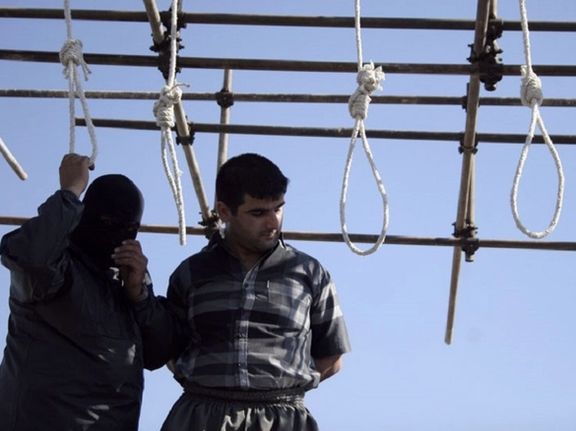
Iranian media reported that two other men were publicly hanged in Fouladshahr, Esfahan province, on charges of moharebeh (enmity against God) and corruption on earth on Wednesday.

Iranian media reported that two other men were publicly hanged in Fouladshahr, Esfahan province, on charges of moharebeh (enmity against God) and corruption on earth on Wednesday.
According to the Judiciary's Mizan website, the two men identified as Mohammad Ghaedi Nasab, 35, and Sadegh Mahmoudi Baram, 25, were publicly hanged after a criminal court sentenced them to death for participation in murder.
It is alleged that the two defendants fought and disarmed officers, killing one and causing another to lose a finger on November 18, 2021.
The executions bring this week's total of public hangings to four.
On Saturday, Iran hanged two Afghan men in public on charges of playing a role in an attack on a shrine in October 2022 where 15 people died and 20 were wounded.
Mohammad Ramez Rashidi and Naeem Hashem Ghetali were hanged in a street near the Shahcheragh Shiite shrine and mausoleum in the southern city of Shiraz early in the morning. Iran's official news agency IRNA said they were hanged before dawn with “hundreds of the families of the martyrs” and other citizens of Shiraz witnessing the executions.
The attack on Shahcheragh shrine took place October 26 last year when anti-regime protests were raging on in Iran. This led to speculations and accusations that the attack was staged by the government to divert attention from the protests and also justify a crackdown.
Meanwhile, death sentences of at least three other citizens with charges like drug trafficking and murder were in Jiroft, Kerman province.
Earlier, the US-based Human Rights Activists News Agency (HRANA) mentioned in its annual report that in the previous Iranian year ending on March 20, at least 617 citizens were executed, two of them in public.
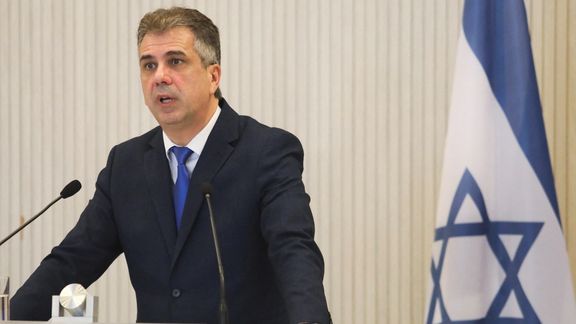
Israel has claimed that Iran was behind a foiled attack on its embassy in Azerbaijan, the latest in a wave of regime’s plots against Israeli targets abroad.
Foreign Minister Eli Cohen described the Iranian regime as a “global terror threat” Thursday, adding that Tehran is orchestrating a series of attempts to harm Israelis abroad. “Tehran stands behind the attempt,” Cohen said in a statement during an official visit to Serbia.
He made the remarks two days after Azerbaijan's security agencies said they thwarted a terrorist attack on the Israeli embassy in the capital Baku, arresting a 23-year-old Afghan national identified as Fawzan Mosa Khan.
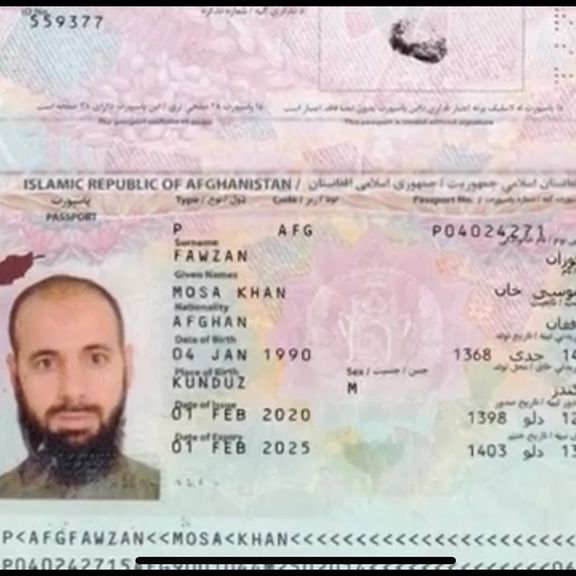
“Iranian terror is a global threat, as we saw in the past few days in Azerbaijan in an attempted attack against the Israeli Embassy in Baku, as well as in recent months in Cyprus and Greece in attempted attacks against Israelis and Jews,” Cohen said, adding Iran had funded and issued instructions to the terror cell that attempted the attack.
He also reiterated calls on the international community to come together to oppose the Islamic Republic’s terror activities.
During a visit to Azerbaijan on Thursday, Gallant said Israel and its foreign partners have foiled more than 50 Iranian-orchestrated attacks on Israelis and Jews abroad in recent years.
"At its supreme leader's orders, Iran has in recent years waged a worldwide terror campaign of unprecedented scale, focused on Israelis and Jews ... We are talking about more than 50 attempted attacks," Israeli media quoted him as saying.
According to Azerbaijan’s State Security Service, Mosa Khan was planning to commit a terrorist act accompanied by an explosion, fire or other similar events in conspiracy involving other individuals. It added that he came from “a foreign country” in order to surveil “a third country embassy,” recruit a cell and obtain weapons and funding.
Israel's intelligence agency, Mossad, recently revealed new details about a terrorist cell directed by Iran which intended to harm Israeli businessmen in Cyprus after Cypriot intelligence services revealed they had foiled the Iranian plot.
Israel later said its agents in Iran succeeded in capturing the suspect behind the IRGC-planned attack on its nationals.
The Mossad published a video of the captured agent, identified as Yousef Shahabazi Abbasalilo, sharing details of his entry to Cyprus through the Turkish occupied north and how he had scoped out the location of the first target for assassination, prepared the weapon and concealed it on word that he must flee just days ago. Iran rejected the veracity of the video.
In March, Greek police arrested two Pakistani nationals who were allegedly planning mass-casualty terrorist attacks against a Jewish restaurant and Chabad House in Athens.
In November of last year, Georgian security officials revealed they had foiled a recent attempt by the extraterritorial arm of Iran’s Revolutionary Guards, the Quds Force, to kill a prominent Israeli-Georgian living in the capital Tbilisi.
The latest plot comes amidst simmering tensions between Iran and its archrival Israel, and with its neighbor, Azerbaijan.
Tensions which have been rising between Iran and Azerbaijan since November 2022 when both sides accused each other of engaging in terrorism and espionage in the other’s territory. Things worsened with the opening of the Azerbaijan embassy in Tel Aviv, which angered Tehran. Iran has conducted military drills on Azerbaijan's border as a show of force.
In June, Baku closed the Islamic Republic’s cultural attaché office in the city, about a week after an opposition group released documents obtained from a hack into the Iranian presidency servers, showing that the Iranian government is eying ways to redefine its relations with Azerbaijan.
Iran has suggested Azerbaijani involvement in the October 26 attack in Shiraz claimed by the Islamic State group (Isis-Daesh) and, also accuses Baku of harboring Israeli intelligence and military elements that plan to use its territory in a possible attack against Iran’s nuclear facilities.
The two countries in early May expelled each other’s diplomats after incidents that Baku also dubbed as "terrorist attacks". These included a gunman’s attack on Azerbaijani diplomatic mission in Tehran in January after which Baku shut down the embassy and an attack on Azerbaijani lawmaker Fazil Mustafa in March, who is an outspoken critic of the Islamic Republic.
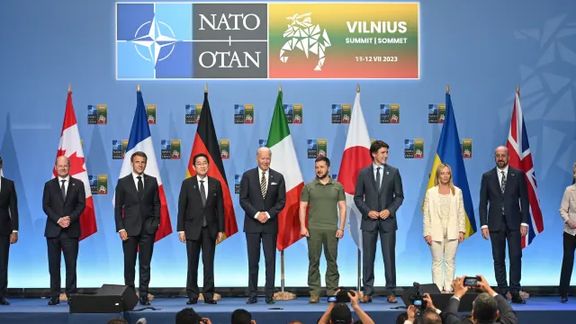
Iran has issued a vague response to a statement by NATO this week, calling on Tehran not to render military assistance to Russia.
The Iranian embassy in Brussels issued a statement on Thursday rejecting NATO “allegations” in general terms, but not directly refuting accusations that it has been supplying kamikaze drones to Russia.
The statement insists that Islamic Republic has maintained “neutrality” in the Ukraine conflict and remains committed to the United Nations charter, including respect for the independence and “territorial integrity” of all countries.
NATO’s 31 member states issued a statement during their summit in Lithuania calling "upon Iran to cease its military support to Russia, in particular its transfer of Uncrewed Aerial Vehicles (UAVs) which have been used to attack critical infrastructure, causing widespread civilian casualties.”
Western powers have been urging Tehran for months not to supply drones and other weapons to Russia. The United States has even made it a condition for the resumption of nuclear talks suspended last September, saying Iran should stop its burgeoning military cooperation with Russia.
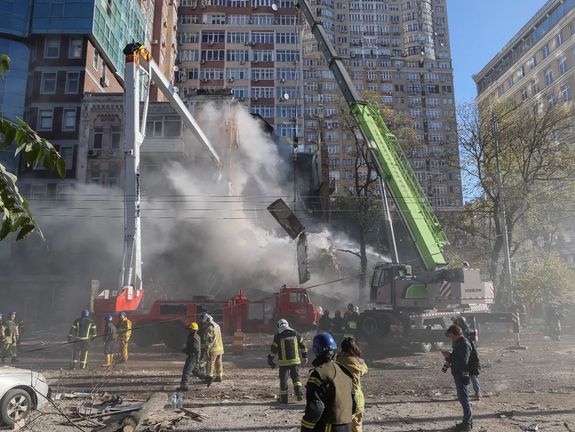
So far, Iran has supplied hundreds of its Shahed drones that are sent on one-way missions carrying nearly 50 kilograms of explosives.
On the same day that Iran issued its statement, Russia launched 20 Shahed drones against Ukrainian cities including the capital Kyiv, which caused destruction and injuries.
However, nowhere in the statement Iran even mentions NATO criticism of its military cooperation with Russia or the drone issue. Iranian officials in recent months have used the same tactic, expressing neutrality regarding the war in Ukraine and avoiding direct response to accusations of supplying drones to Russia.
When evidence began to emerge last October of Iranian drones targeting Ukrainian cities, Tehran first denied the accusation but a few weeks later in early November, foreign minister Hossein Amir-Abdollahian finally admitted sending drones, but claimed they were shipped before the Russian invasion.
NATO also called on the Islamic Republic to end its covert activities on the territories of its member states. "We express our serious concern over Iran’s malicious activities within Allied territory."
The United States and Britain have accused Iran of numerous terror plots on their soil in the past two years. Last November, Iran International TV moved its broadcast operations to Washington DC after the British police found credible information that Iranian agents were plotting to harm its journalists.
In its statement, Tehran tries to turn the tables and accuses some Western countries of fomenting unrest in Iran.
“Despite Iran’s commitment to observe international law, it has been harmed by the actions of some NATO members by their active support for unrest [in Iran] by providing refuge to elements and subversive terrorist organizations,” the statement claimed.
Iran labels the popular anti-regime protests that broke out last September as “riots” and has been blaming its “enemies”, presumably the United States, European powers and Israel for planning the unrest.
The Iranian statement also claimed that the Islamic Republic has played a “leading role” against terrorism in the region. In fact, Tehran supports and arms an array of militant organizations in Iraq, Syria, Lebanon and Palestinian territories.
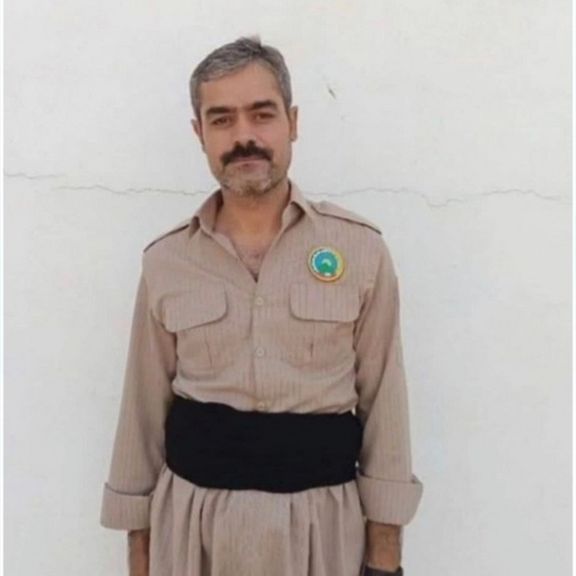
The Kurdistan Democratic Party of Iran says with the assassination of another of its members the number of people killed by the Iranian regime reached three since last week.
"Siamand Shaboi, a member of the Kurdistan Democratic Party of Iran and a resident of Shanu city, was assassinated by the terrorists of the Islamic Republic in Baherka district near the city of Erbil, the capital of [Iraq's] Kurdistan Regional Government,” read a statement released on Wednesday.
"The Democratic Party expresses its condolences to his family and condemns this terrorist act of the regime of the Islamic Republic of Iran."
According to Hengaw Organization for Human Rights, the body of Shaboi, was found in an unfinished building 10 kilometers from Erbil, around noon on Wednesday.
The political activist who had found refuge in Iraq was found dead with several bullets in his back, according to Hengaw's sources.
A close relative of Shaboi told Hengaw that "he had disappeared since yesterday [Tuesday] evening. He disappeared in a completely unprecedented manner. We hold the terror teams of the Islamic Republic of Iran responsible for this assassination."
The Iranian government had threatened Shaboi many times over the past few years, and recently his two brothers and his 14-year-old son were arrested.
A week ago, the Kurdistan Democratic Party of Iran said two of its forces were killed by the Islamic republic agents in the Kurdistan Region of Iraq.
Last year, the party was the target of IRGC artillery attacks during the nationwide uprising against the Islamic Republic.
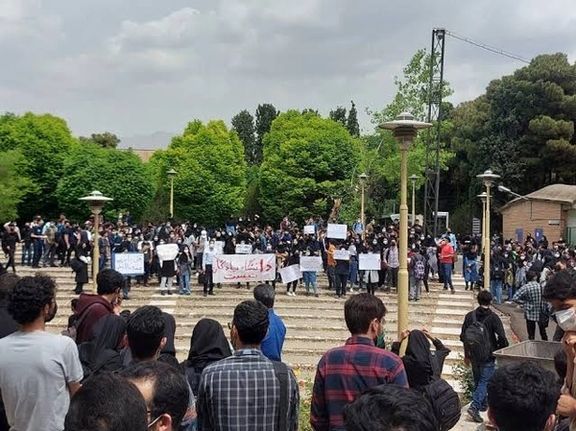
Security forces in Iran have unleashed a fresh wave of crackdowns at universities employing both verbal and physical assault to suppress the student movement.
Iran International’s interviews with around 15 students showed an increase in harassment at public and private universities in various cities, raising concerns about the safety of students and freedom of expression within educational institutions in Iran.
The student movement played a significant role in the formation and continuation of last year's popular protests, sparked by the death of a 22-year-old woman, Mahsa Amini in hijab police custody.
With the September anniversary of the protests looming, students and student activists are concerned about a surge in violence from security forces to suppress any fresh protests in the universities before they gain momentum.
“Security personnel patrol the campus on motorcycles, and their warnings regarding hijab are highly insulting, using very offensive language,” a student from Beheshti University in Tehran told Iran International.
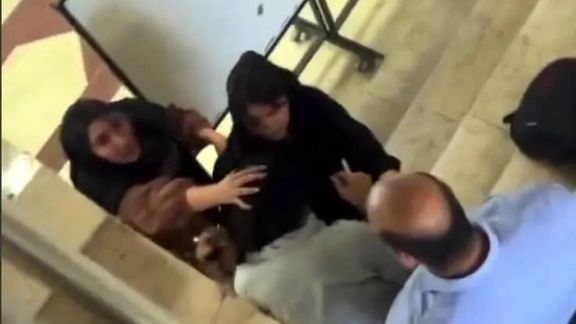
Iranian students have increasingly chosen not to wear the compulsory hijab, viewing it as a symbol of a patriarchal society that contradicts their pursuit of gender equality. Their refusal to comply with the government-imposed dress code also serves as a demonstration of their discontent with the prevailing Islamic state, and its policies.
On June 15, several students at Tehran’s College of Arts protesting stricter hijab rules were seriously injured by the head of campus security. Similar assaults have occurred in other instances.
While there is no precise statistic available on the number of students suspended or banned from universities for not wearing the compulsory hijab, students said dozens have been denied the opportunity to pursue their education due to this reason.
A student from Al-Zahra University mentioned on Twitter that security guards at the university contact the fathers of female students and by making baseless accusations, put pressure on both the students and their families.
“My family reluctantly agreed for me to come to Tehran. The security office [of the university] cancelled my accommodation due to the hijab issue last month,” said a student in Tehran.
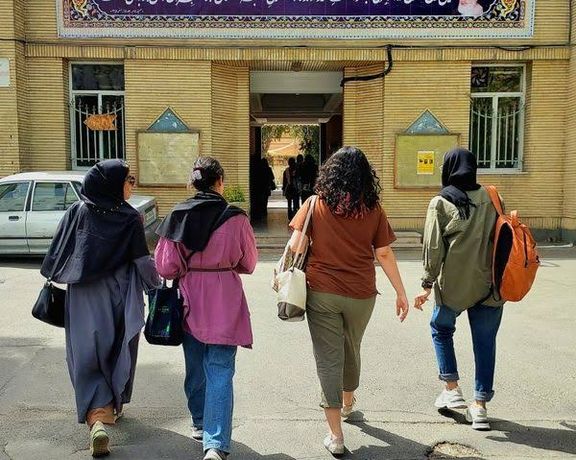
“The behavior of the security personnel was so annoying and ugly that I prefer not to talk about it. I practically have nowhere to stay, and it is not possible for me to afford rent and expenses for food in Tehran. I am forced to drop out and return to my hometown,” she said.
Students said activities of the Hijab and Dress Code Committee that oversees student compliance have expanded during the exam period in early summer. Security personnel were present in the exam halls and issued warnings to students. If they refused to comply, they were subsequently banned from entering the university without any prior notice.
University officials and teachers have tried to intervene and allow banned students to enter the university for exams, students said, but security forces have not allowed it.
The recent surge in suppression following last year's uprising signifies a systematic endeavor by the government, which perceives filing cases and expelling students from universities as the sole means of addressing the situation.
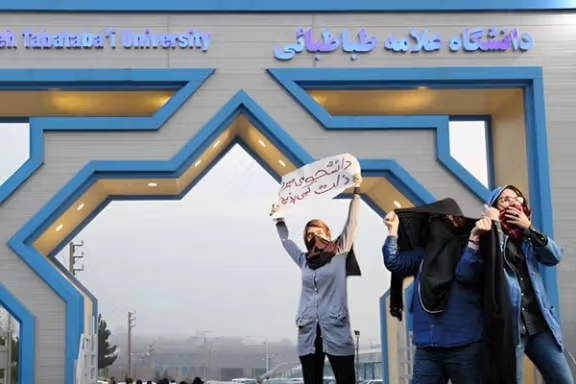
Student protests also existed during the monarchy in 1960s and 70’s but for political reasons, not hijab, and many were punished, including arrests, but systematic or random violence on campuses did not exist. There were no vigilante or plainclothes agents to harass the students. Police showed up and used force to disperse campus protests.
At least a thousand protesting students have been suspended or academically banned from various universities in Iran since last September.
A student activist said university security, along with security forces, are attempting to suppress the spirit of freedom and student life after the Women, Life, Freedom uprising.
“Their assumption was that by mass arrest and suspension, they could break the spirit of the movement,” a student said, “but they fail to realize that 'the university is a smoldering fire beneath the ashes.”
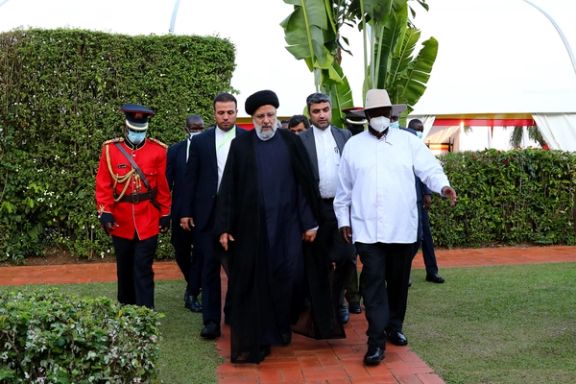
Iran’s president Ebrahim Raisi, who is a Shiite cleric, says homosexuality is one of the "dirtiest" phenomena in human history.
Raisi, who is on a tour to three African countries, made the remarks in a joint press conference with his Ugandan counterpart on Wednesday.
“I believe that this issue, and these strong attacks by the West against the institution of families and against the culture of the nations, is another area of cooperation for Iran and Uganda,” Raisi said after a private meeting with Ugandan President Yoweri Museveni.
“Western countries try to identify homosexuality as an index of civilization, while this is one of the dirtiest things which have been done in human history,” Raisi added.
In late May, Uganda approved one of the world's toughest anti-LGBTQ laws, including the death penalty for "aggravated homosexuality", drawing Western condemnation and risking sanctions from aid donors.
As well as capital punishment for "serial offenders", the law also stipulates a 20-year sentence for "promoting" homosexuality.
Museveni urged lawmakers to resist "imperialist" pressure and called homosexuality a "deviation from normal."
More than 30 African countries already prohibited same-sex relations, but Uganda's new law went even further.
Homosexuality in Iran is punishable by death for men and by 100 lashes for women. On repeated offenses, women can be also executed.
When Mahmoud Ahmadinejad visited Columbia University in New York in 2007, he triggered laughter and boos from the audience and widespread criticism in the West by saying, "In Iran, we don't have homosexuals like in your country."